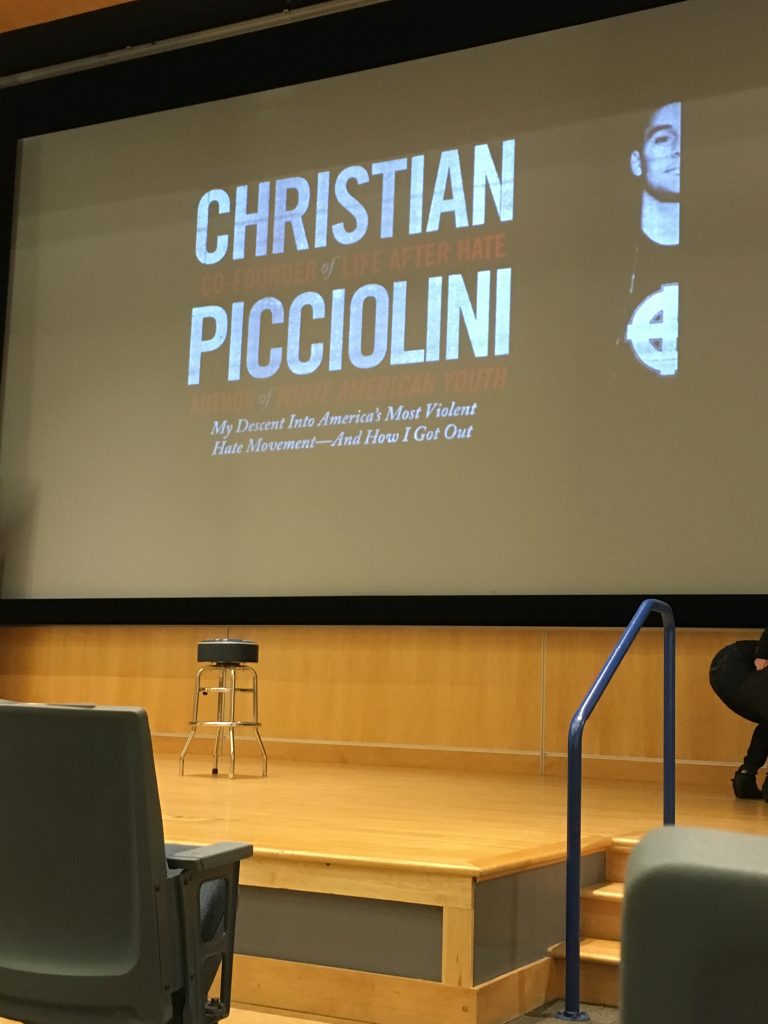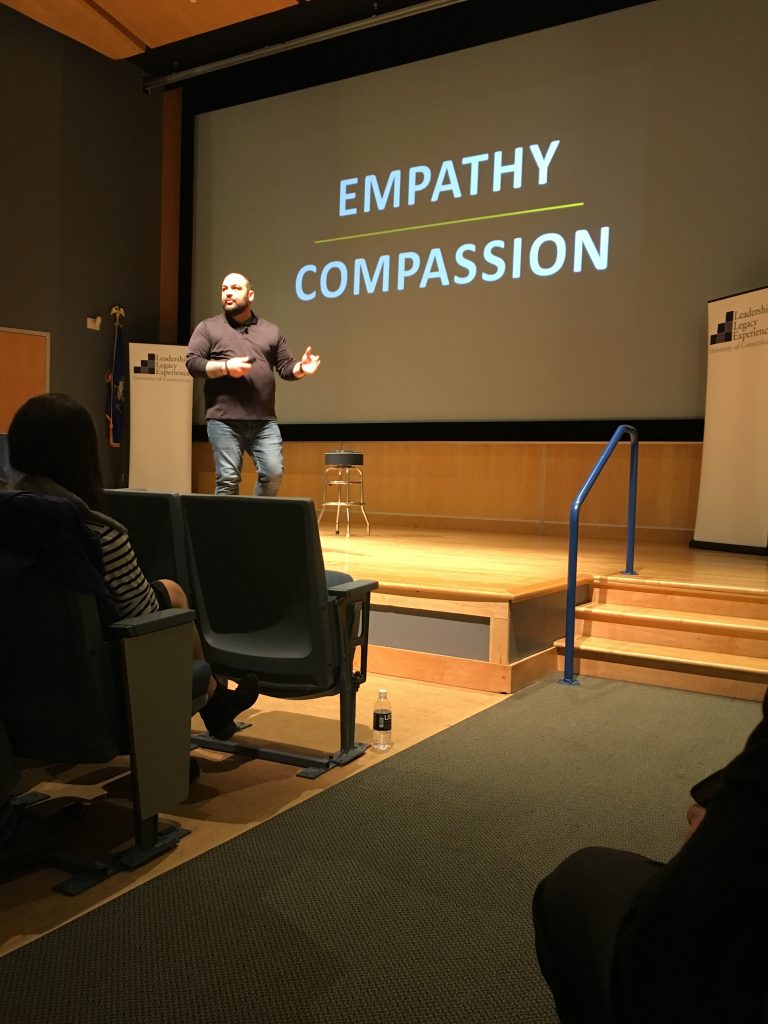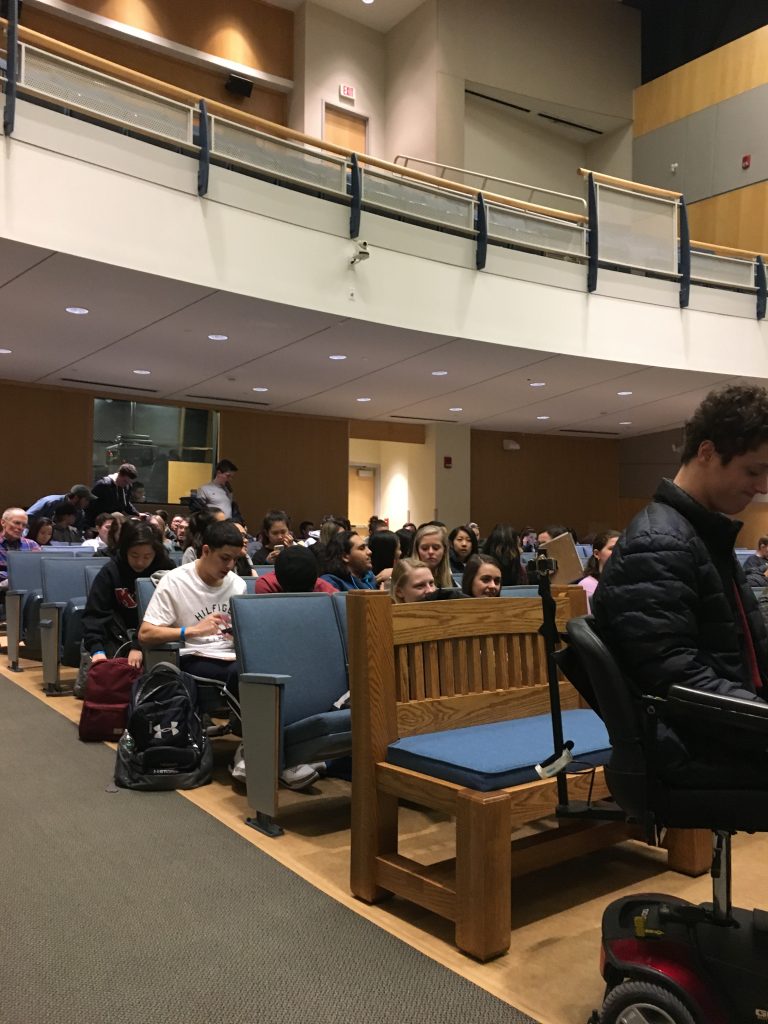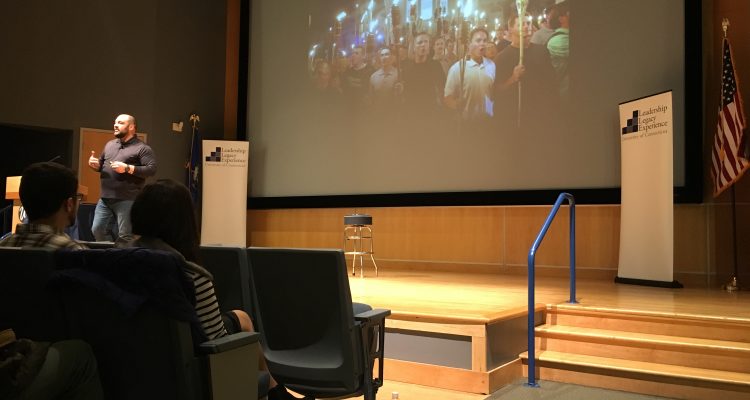By Kara Murray
Former white supremacist Christian Picciolini, now director, producer, author, speaker and global peace advocate, spoke on Feb. 27 at the University of Connecticut about his time as a neo-Nazi and how it changed his life.
Picciolini discussed his involvement as a member of America’s first white supremacist neo-Nazi group in Chicago from ages 14 to 23.
He said he joined the group due to being bullied at school and struggling with his own identity. By joining, he was treated with fear, not respect, and it gave him a sense of power he’d never had before, Picciolini said.
According to Picciolini, music was a vital tool in spreading their message: racist lyrics were used to get a reaction out of its listeners and inspire them to commit acts of violence.

Christian Picciolini was invited to the University of Connecticut on Feb. 27.
Photo: Kara Murray
Picciolini said he left the neo-Nazi movement when he was 23 but became depressed and felt that he’d lost his identity and purpose yet again.
He started Life After Hate in 2009 as a literary blog to share his story.
He was inspired to work with other white supremacists to encourage them to change their hateful views the same way he did. As of today, he has helped close to 120 people disengage from the white supremacist movement.
“Be vigilant, vocal, visible, but not violent,” Picciolini said. “Find someone you feel doesn’t deserve your compassion and give it to them.”

Picciolini’s visual presentation showcased many personal photos, including a record store in which he sold racist music.
Photo: Kara Murray
Odia Kane, who was a member of the Leadership Legacy Cohort last semester, thought the speech was well put-together.
“It wasn’t necessarily defensive, which was my primary concern when I heard he was first coming,” Kane said. “It’s a lot more complex than one group disliking another group, [it’s] one group seeking refuge or brotherhood . . . in one another.”
The event was sponsored by the UConn Leadership Legacy Experience and UConn Hillel. Nearly 200 people attended the speech held in the UConn Student Union Theater.

The event lasted for about two hours.
Photo: Kara Murray


